#27. Enemy At The Gates
In Enemy at the Gates (2001) we see Jude Law play the legendary Soviet sniper Vasily Zaitsev during the Battle of Stalingrad, the largest confrontation of World War II.
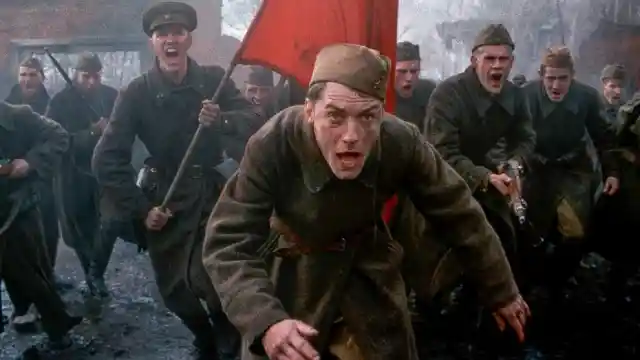
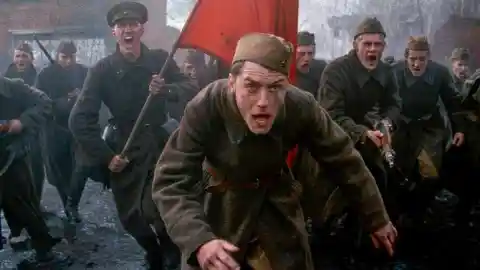
In the movie,Vasily claims to have fought Erwin König(Ed Harris), although that never happened in reality. It is a minor detail but for World War II fans, this is a huge mistake.
#26. Pearl Harbor
Pearl Harbor is infamous for basically taking a real-life event and changing almost everything about it. This Michael Bay movie had a lot of romance and explosions, which usually do well at the box office, but that's about it.
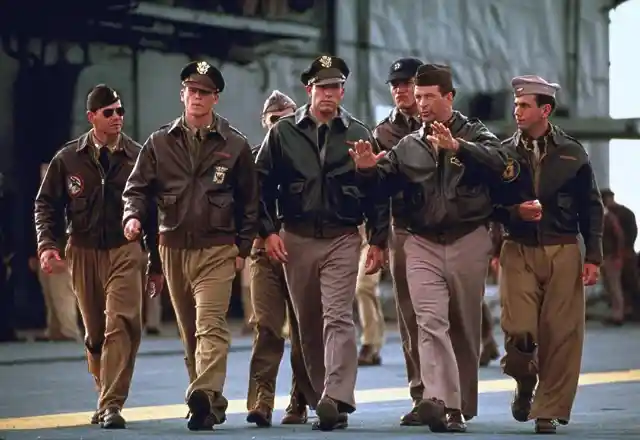
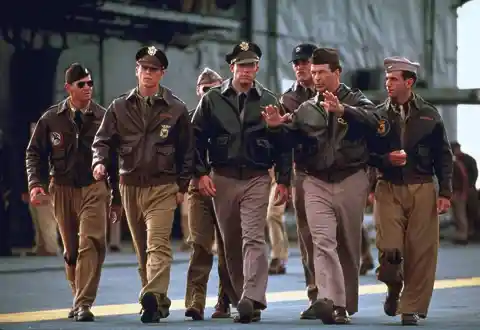
There are countless inaccuracies in this film. To keep it short, let's just say that this movie shouldn't be taken as a representation of the Attack of Pearl Harbor but rather as an entertaining action movie to wind down after a long day.
#25. Jarhead
Jarhead is a 2005 American drama, strictly based on the memoirs of U.S. Marine Anthony Swofford during his time on the Gulf War. The film was praised for accurately portraying the boredom and monotony that comes with combat deployment.
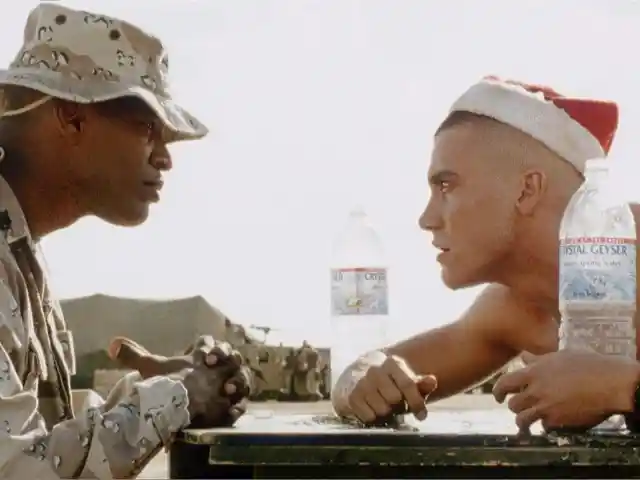
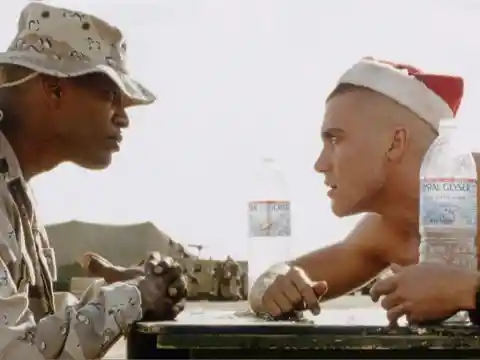
Despite the good reviews, actual Marines weren't very happy with it and claimed that the movie did not accurately represent the experience they went through. What do you think?
#24. Battle Of The Bulge
The Battle of the Bulge is a 1965 film based on a battle of the same name, which took place during World War II. It was the last offensive attack of the Germans, which slowed down the Allies. This battle stretched over three excruciating months.
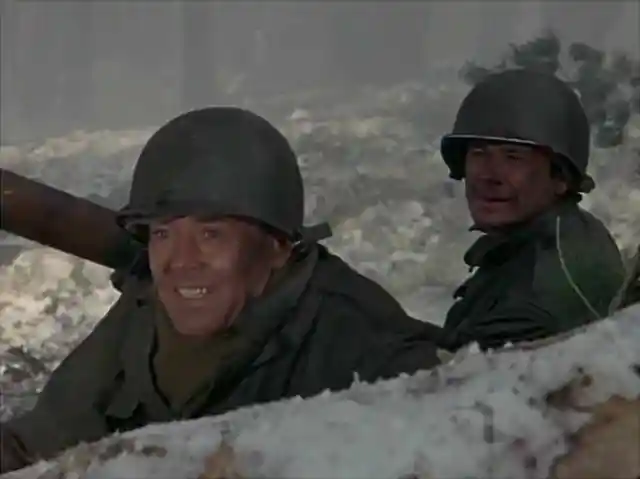
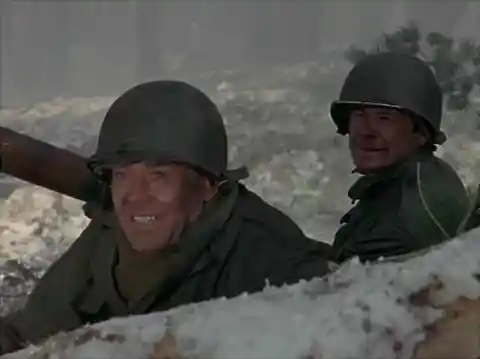
Of course, trying to condense three months into three hours is no easy task, and critics of the film were too harsh. While there were many inaccuracies, the movie tried its best to tell this complicated and long story in just three hours.
#23 - U-571
U-571 is a textbook example on how to grab a historical event, turn it upside down, shake off all details and even some key factors, and turn them into a dramatic Hollywood movie.
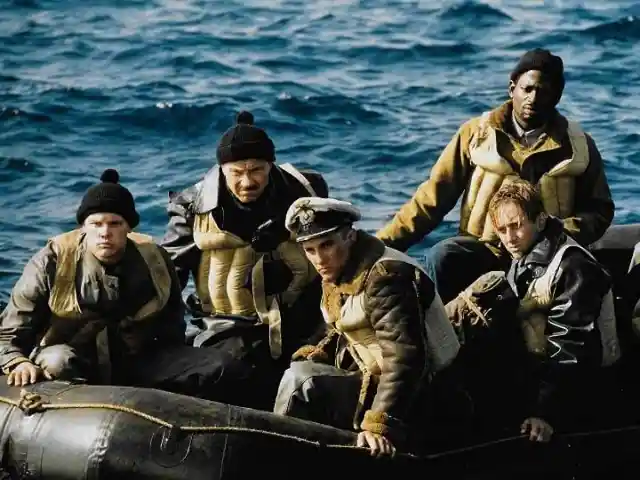
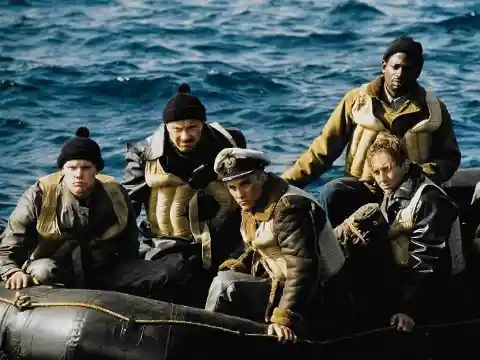
As expected, while it did well for the American audience it catered to, the British LOATHED IT, definitely pissed at being completely omitted from the film, after all, the first ones to find and decode the Enigma Machines from the German submarines were them, even months before the Americans joined the War. Because of this, even the Prime Minister, Tony Blair, made the further statement: > "The film is an affront to British sailors." >
#22 - Windtalkers
Another movie rife with inaccuracies like we´ve just seen in U-571, Windtalkers is about Joe Enders (Nicolas Cage), whose job is to protect Navajo code-breaker Yahzee. During the course of the movie, they start forming a friendly bond, but, sadly, his job implies that if security is compromised, he must kill Yahzee so the code-breaker cannot be taken alive by the enemy.
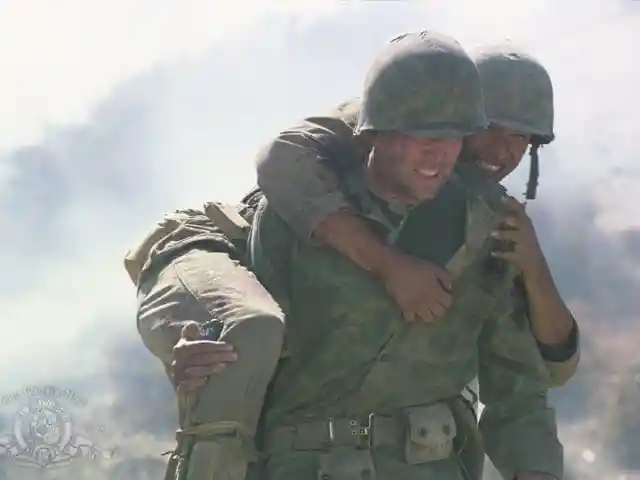
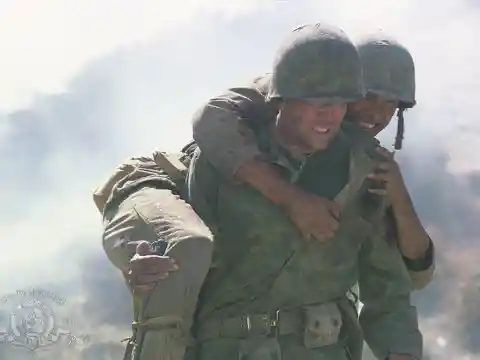
As you can imagine, in real life, code-breakers were never assigned a personal grim reaper, the job of their companion was merely to be a bodyguard. Among another inaccuracies, the movie fails to provide even the basics on how thanks to the Navajo, the Americans were able to break through the Japanese code in the opening months of the war. Overall, this movie felt more like a theatrical play rather than a historical reenactment.
#21 - Red Tails
Released in 2012, Red Tails is an American film set during World War II. What makes this film different is that it tells the story of the Tuskegee Airmen, a group of the African-American United States Army Air Forces (USAAF). And the issue here is the approach that was taken to depict this group as the heroes of the story.
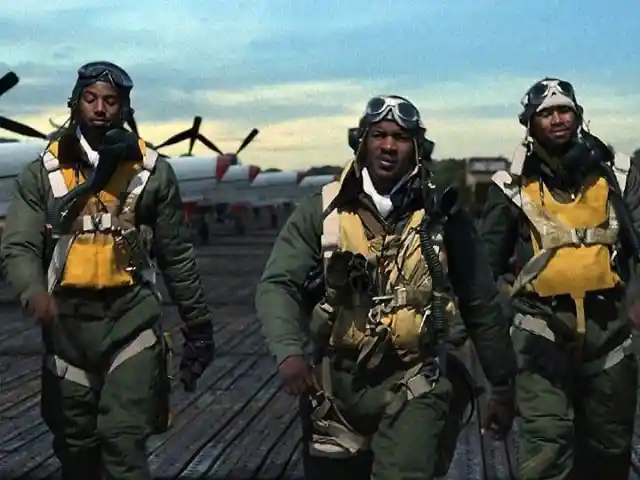
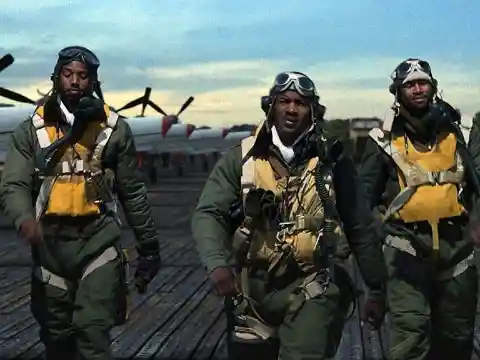
While this would have been a golden chance to create conscience about the country´s past history of racial segregation and discrimination, the movie chose to opt for a more watered-down "family-friendly"esque approach, which might have been a good exercise for Lucasfilm, as soon after they were merged into the Disney company.
#20 - Flyboys
War drama Flyboys, released in 2006, takes us to the beginning of aerial combat practices, where amazing and acrobatic fights were settled in the sky. Sadly, this movie was nowhere near a proper portrayal... It didn´t even get some of the aircrafts right!
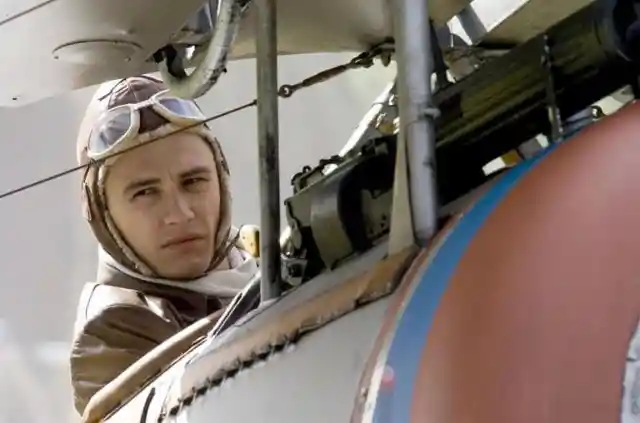
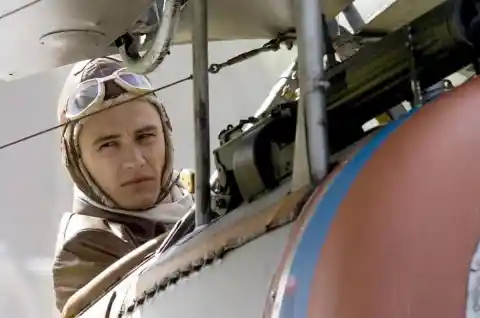
Out of several offenders, the worst of them, was that the military adviser on set was actually a fraud. And we mean it literally. Jack Livesey, of British origin, was found guilty and charged for fabricating a 20-years long military history. Honestly, the making of this movie probably deserved a movie of its own, that could have been more entertaining!
#19 - The Green Berets
Directed and starred by then 59-years old John Wayne, this 1968 American war film is set in Vietnam. And this is as far as the accuracies on this film go. Look... We all love a GOOD John Wayne film. But this one? This is not one of them. The film "is based on a 1965 novel written by Robin Moore".
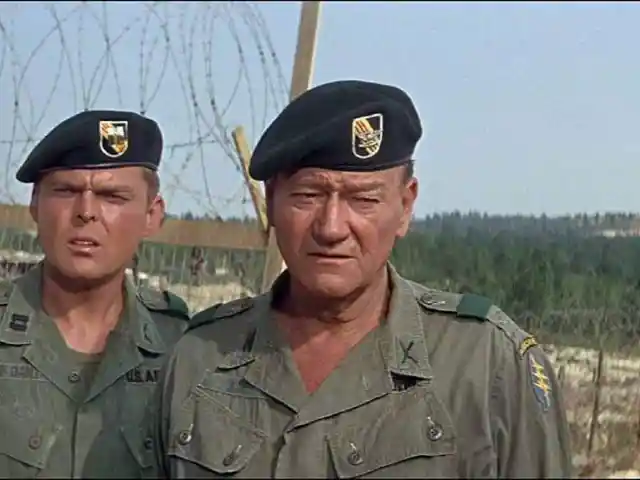
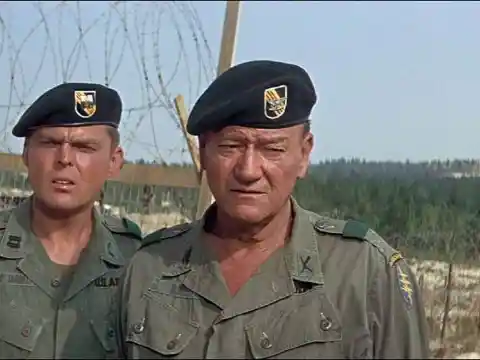
> "That’s like a steakhouse leading you through a slaughterhouse before dinner." > The Green Berets, with its "cowboys and indians" vibe, was completely tone-deaf to the times. It failed on many levels to please the audience it tried to lure.
#18 - The Hurt Locker
In the case of The Hurt Locker, released in 2008, the movie was actually considered amazing, and had universal acclaim! Focused on the Iraq War Explosive Ordinance Disposal team, it deals with the psychological reactions to the stress of combat. A side of war not seen often to this degree in fellow belic films.
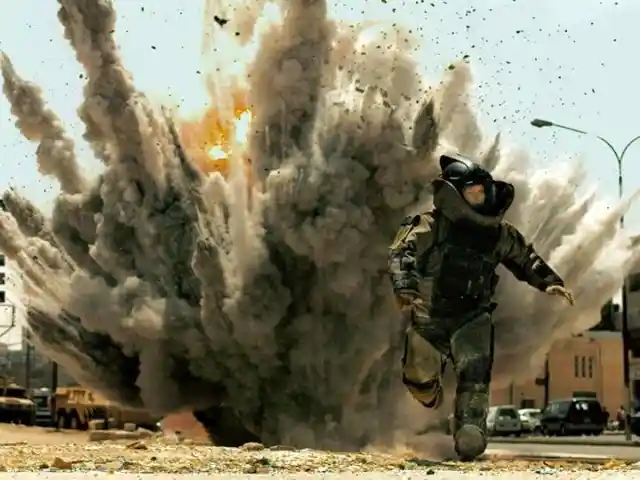
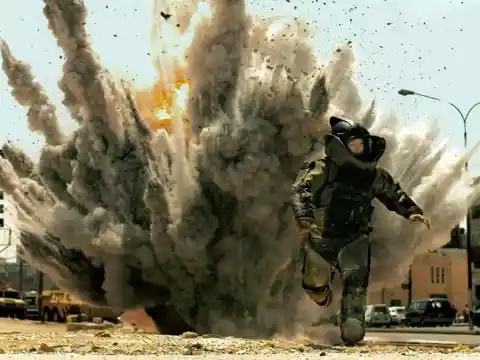
This realistic and compelling drama film was addictive to many, but "intolerable" to others, mostly actual veterans of the Iraq War, who think: > "The main character lacked the discipline expected from his job". >
#17 - Alexander
If you think the actors seen on the picture below look somewhat convincing for their roles, then there is at least ONE good thing that can be said about this movie. Spoiler: Clearly, this wasn´t enough, as Alexander flopped. HARD. Almost no one will go out of their way to defend this historical movie, because while many others at least managed to be entertaining despite their innacuracies, the same cannot be said for Alexander.
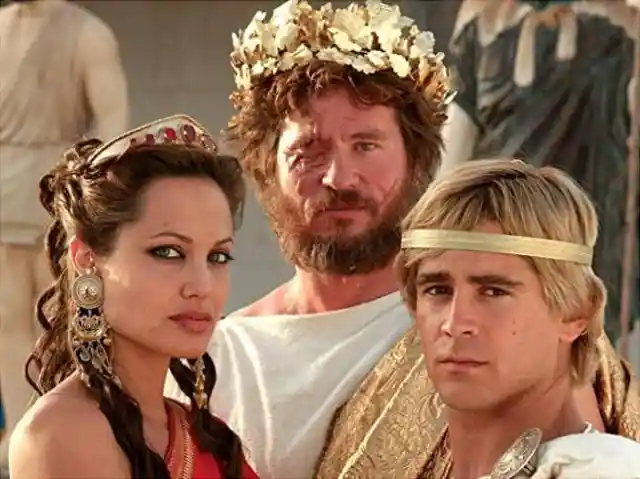
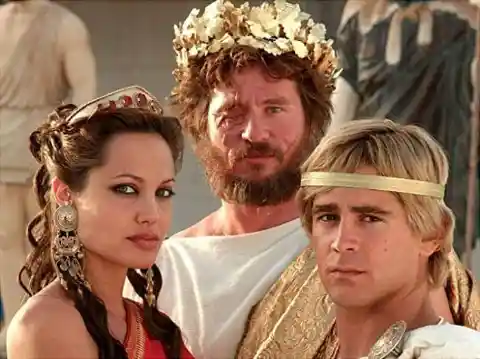
The story behind one of the GREATEST military campaigns in the history of mankind was glossed over in favor of a single battle, to name JUST the worst offender of the many insulting issues. And it wasn´t only the fact that many battles were outright removed, they even went as far as to critically fail on their research, as they straight up made up native peoples and customs.
#16 - The Last Samurai
2003 American period action drama The Last Samurai, starred by Tom Cruise, was set on a very important and fundamental period of japanese history: The beginning of the Meiji era, the Restoration, where Japan decided to finally open the country again to the World, and allowed exchange of technology and culture once more. But more importantly, at least for this particularly story, is the removal of title and privilege of the samurai class that came with the Restoration.
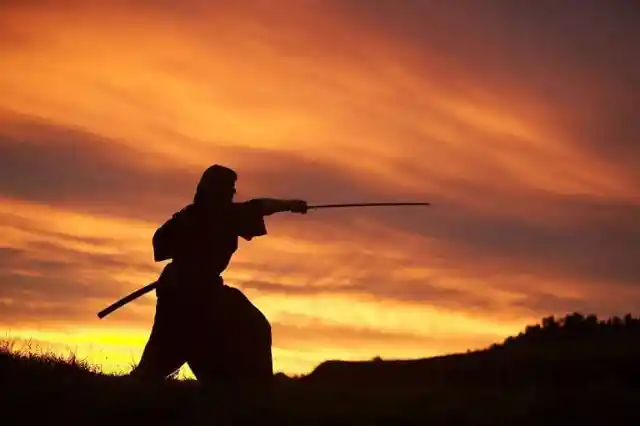
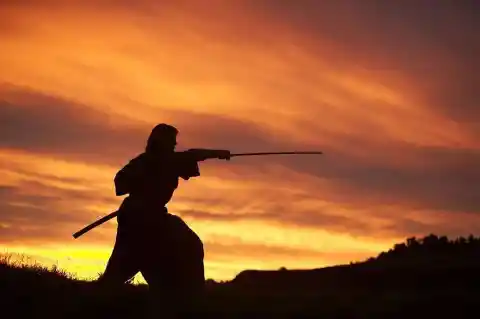
While many think that Tom Cruise playing a samurai feels as wrong as John Wayne playing Genghis Khan (which he actually did!!), overall, the audience (even the japanese audience) enjoyed the movie, despite the use of a white-washed, romanticized version of their customs.
#15 - Braveheart
Here´s another case of a movie that was critically acclaimed, to the point of winning "Best Picture", is actually better known for its infamous side. We have already talked at length about several of its many issues, like the extreme amount of bloopers it happens to have. BUT, even after 25 years, this movie and its constant inaccuracies still give A LOT to talk about. Even up to its NAME.
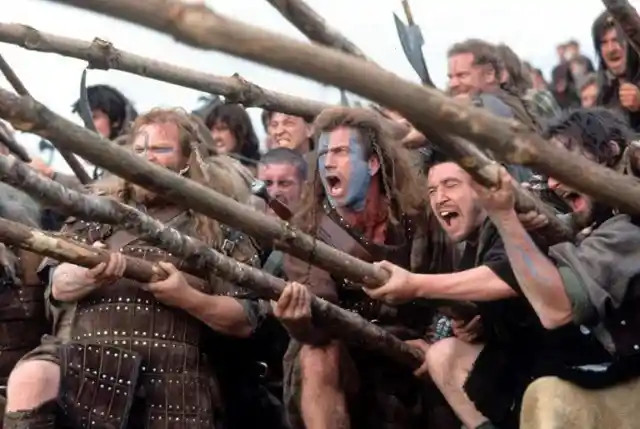
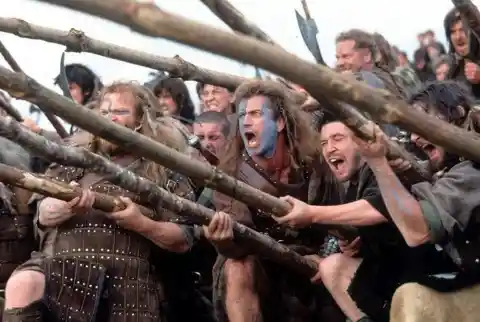
BRAVEHEART was NOT the nickname of William Wallace, sorry to break it to you like this. In fact, nobody in the movie addresses him with this nickname. It was the less honorable Robert de Bruce the one honored with the nickname. And, by the way, he was the TRUE responsible for liberation of Scotland, and as a sidenote: He never betrayed William Wallace. Understandably, the Scots LOATHE this movie, for smearing the name of their national hero.
#14 - Gladiator
Released in the year 2000, Gladiator won an Oscar for “Best Picture”, and is highly acclaimed and loved even today. But, despite this, Gladiator is rife with inaccuracies, and, unsurprisingly, bloopers (which we covered in the past as well.) Some of the worst offender when it comes to its many inaccuracies are:
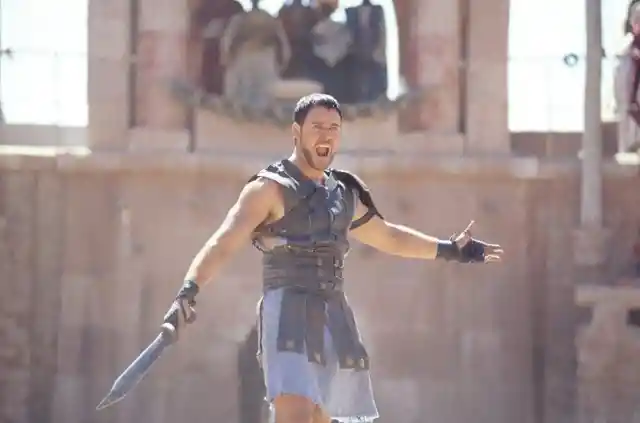
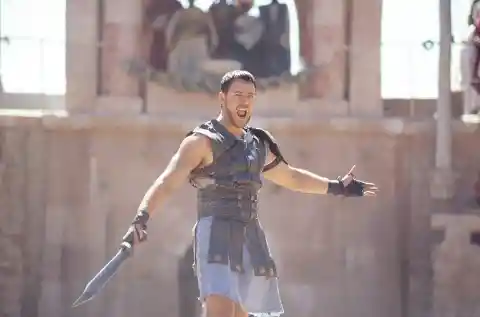
Maximus never existed; Marcus never faced an insurrection during his reign. siege weapons in a battle that takes place in the forest (those are used to take down fortresses and the like) And more importantly: Aurelius NEVER banned gladiator games, as any leader would want to keep his people entertained (distracted) during times of crisis.
#13 - Saving Private Ryan
Set in the Normandy landings operations during June 6, 1944, better known as "D-Day", Saving Private Ryan is a 1998 American epic war film. It was heavily praised, and also a fellow winner of "Best Picture". It also was the highest grossing film that year. So... What´s the problem??
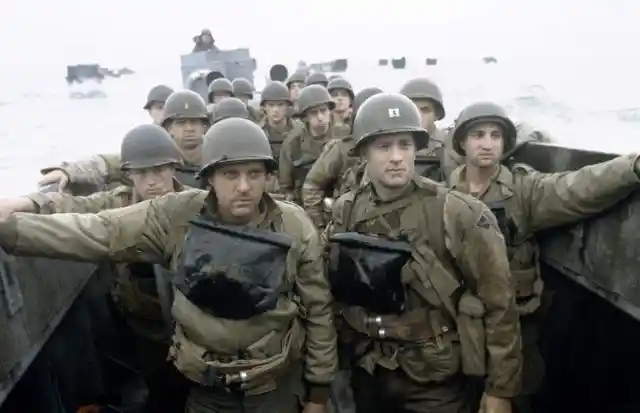
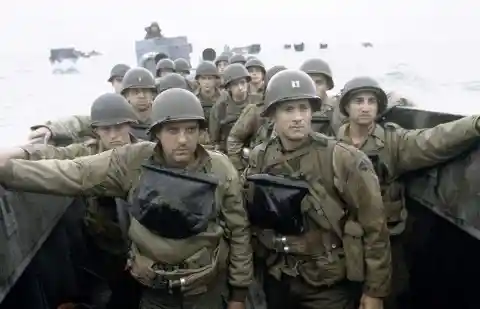
Let´s just say that Spielberg, always a fan of flashy explosions and impact, took some liberties with how D-Day actually unfolded... We´ll just say that you really cannot pass through the German lines in a matter of minutes... In reality, it took hours, and two more waves of landings to establish a beachhead.
#12 - Patton
Another Best Picture winner, Patton was released in 1970, and starred by George C. Scott on the quite fitting role of General George S. Patton. The story is based on Patton´s biography "Ordeal and Triumph" and Omar Bradley´s memoir "A Soldier´s Story".
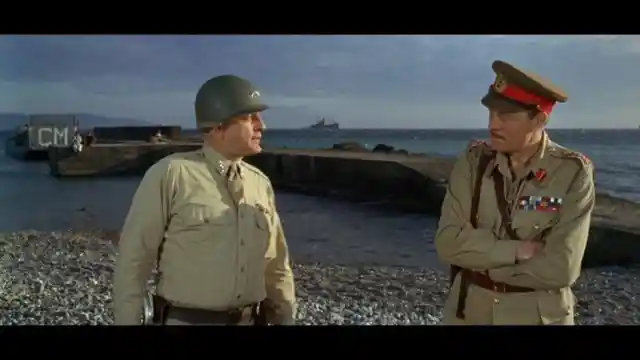
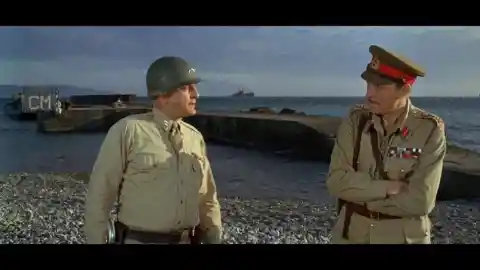
Scott DID win an award for Best Actor, mostly for the opening scene of the film, which he expertly did in just ONE take. His speech was the one that gave the movie some troubles, however. And this is because of the following: It appears that General Patton had a... Penchant, for crude, off-color jokes. Oh, and he was also fond of cursing for extra-comedic effect, and going on rather long pauses.
#11 - The Thin Red Line
The Thin Red Line, released in 1998, is by all accounts highly accurate when it comes to historical reenactment of its events. It was even praised for its amazing action, impressive cast, beautiful setting and--- Wait a minute! Where is this gorgeous place?? I definitely wanna visit on my next vacations!
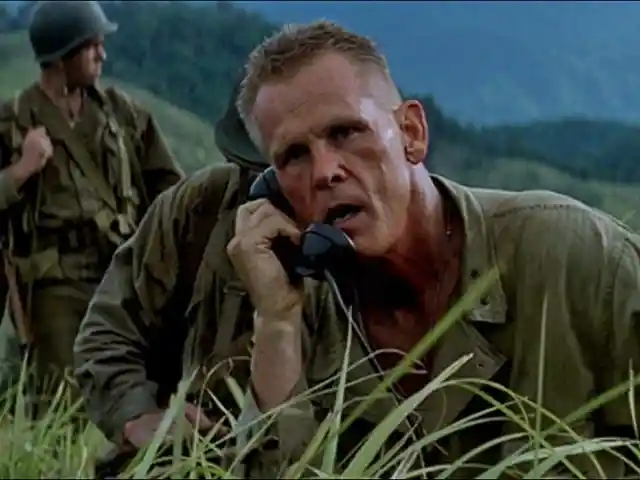
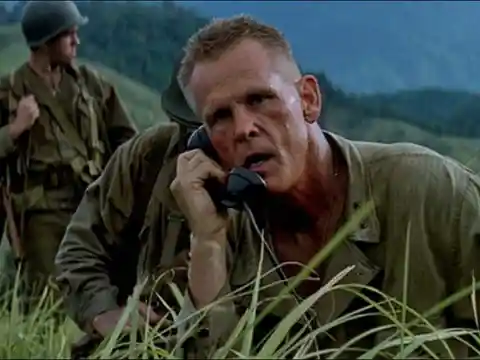
The movie depicts Guadalcanal as a paradise... A gorgeous, lush jungle, with green slopes, crystalline waterfalls, and a cool environment that actually makes you wish to stop the movie right there and get the next plane. Sadly, the real place is just about the opposite: With scorching heat, dangerous insects, and poisonous snakes. Honestly, the only reason people go there is because they are soldiers sent on military campaigns.
#10 - Glory
Glory, a 1989 war film, is a renowned masterpiece, and actually reflects with accuracy the events of the American Civil War. The actors do an excellent job in portraying the real characters, and the reenactments are correct and proper... Of course, maybe we should have saved these praises until the end. As the last scene of the movie was THE problem with it.
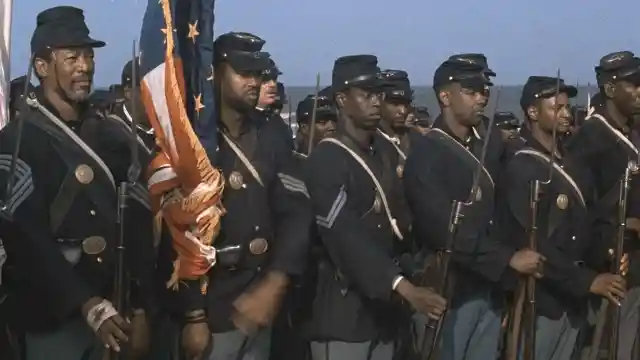
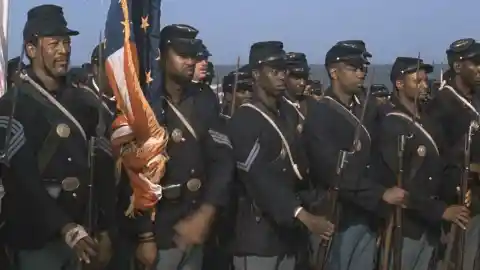
For those who don´t remember from history, the 54th Massachusetts Regiment never actually reached the walls of Fort Wagner. As they were driven back, other Union regiments joined in. So, Fort Wagner was never taken during the Civil War period. Too bad, almost a perfect movie!
#9 - We Were Soldiers
American war film We Were Soldiers was released in 2002 with the starring role of Mel Gibson, who plays the role of Colonel Hal Moore. Looks like Mel just can´t get enough of war movies, but let´s see how he does on this one! Praised by war veterans and war movie fans alike, Glory seems up to a good start. But that´s not really how you get on this specific list, so let´s see what happened:
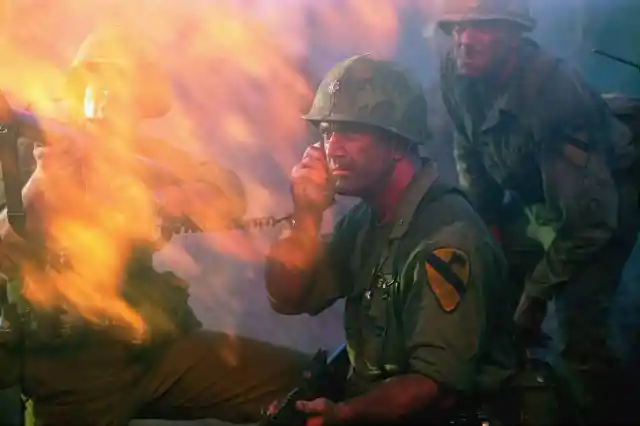
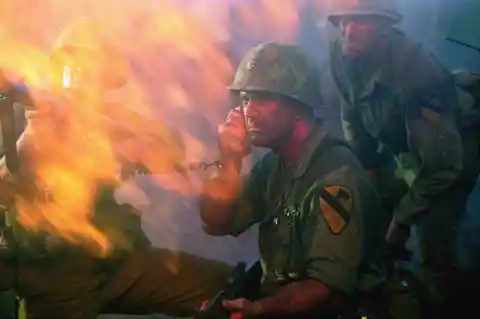
By the end of the movie, Colonel Moore leads a daring and desperate attack into the bowels of the Vietnamese lines. But suddenly, they are attacked by helicopter gunships. The most surprised by this attack is probably the history savvy audience, as these machines didn´t exist yet. The result of this battle was inconclusive, too.
#8 - Born on the Fourth of July
Born on the Fourth of July is a 1989 American biographical war drama film based on the eponymous 1976 autobiography by Ron Kovic. We once again see Tom Cruise starring on this war movie. Looks like Mel got some serious competition there.
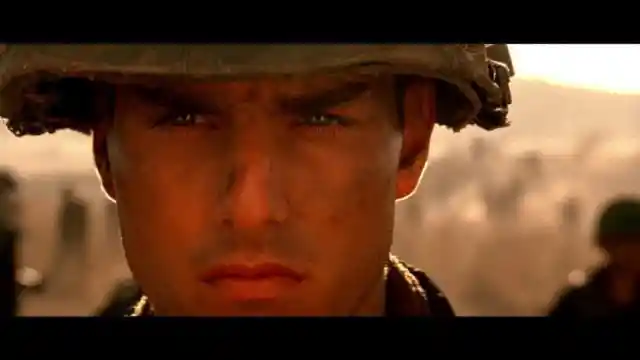
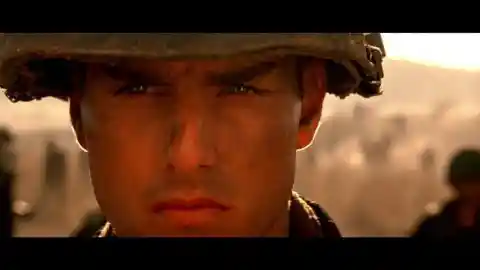
Here, Cruise plays the role of Sergeant Ron Kovic, who is paralyzed due to a battle injury on his second tour in Vietnam. There are claims that the speech Kovic gives on July 4 upon his return to the United States was never written in the autobiography its based on. Additionally, a comrade in arms later on disputed certain events that were both in the book and the movie, making their credibility a bit shaky.
#7 - Hamburger Hill
Hamburger Hill is a 1987 American war movie about the 1969 assault during the Vietnam War, and if you think the name sound fun or even cute, then maybe you should think twice about what makes a hamburger. This movie is regarded as two things: A classic, and Brutal. And true to this article, it´s full of inaccuracies, but maybe this is for the best, and the real-life battle it´s somewhat based on was definitely more controversial:
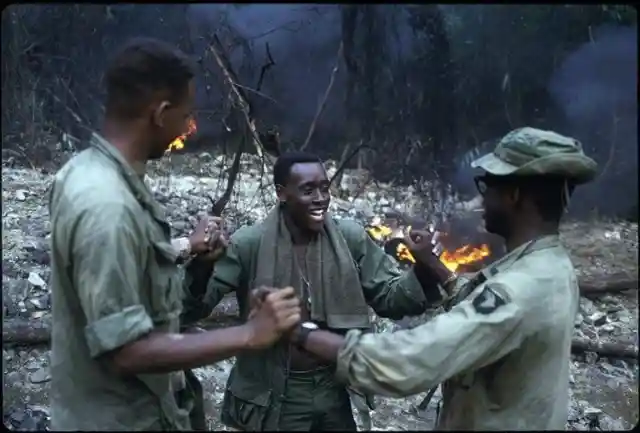
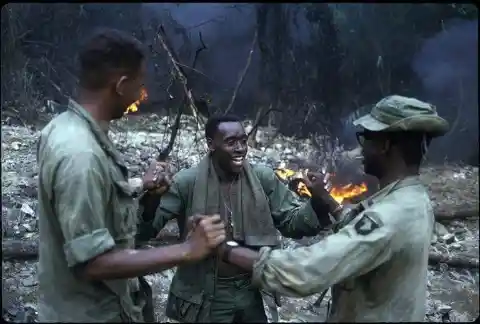
When it comes to the VIetnam War, it was a never-ending cycle of killing to take land, then losing it back, rinse and repeat. So, yes, the name is actually extremely fitting. While the battle in the movie is considered rather realistic, people have also pointed out that the filmmakers were a little too overzealous with the use of war machines. When we consider the battle was almost entirely composed of infantry soldiers, there really shouldn´t have been tanks and the like lying around.
#6 - Good Morning Vietnam
Late actor Robin Williams had one of his most iconic roles of the 80s on Good Morning, Vietnam, wherein he portrayed Vietnam War radio Disc Jocked Adrian Cronauer. The movie was released in 1987 and got nominated for Best Picture. While the real Cronauer LOVED William´s performance in the movie, he admits that the filmmakers took one too many liberties with how the events unfolded.
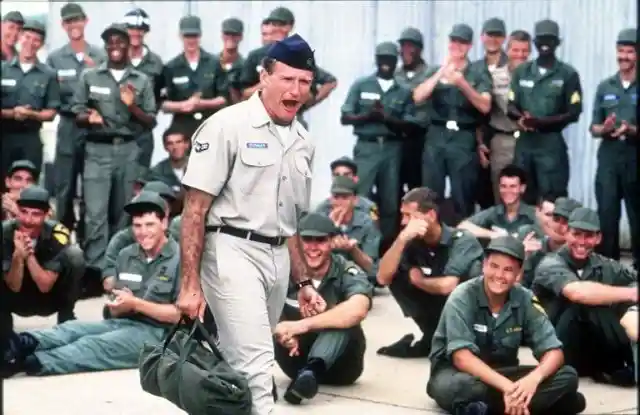
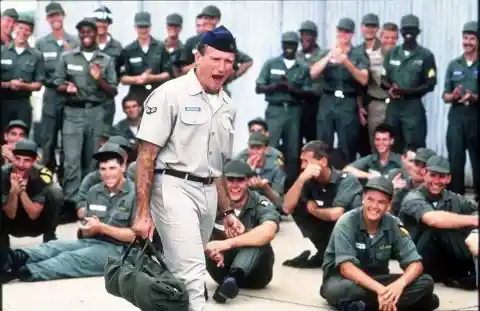
For example: In the movie, Williams becomes friends with a young Vietnamese boy. We later find out this boy is a Viet Cong insurgent, and his friendship forces Williams to leave Vietnam, never-mind how much beloved he is by the troops. Cronauer confirms that doing even half the things Williams did were this movie real, would have immediately landed him in jail.
#5 - The Patriot
The Patriot is a 2000 American epic historical fiction war film directed by Roland Emmerich, written by Robert Rodat, and starring Mel Gibson (he really loves these roles, guys!) On today´s war movie, Mel portrays a real-life historical figure, or, more accurately, a mix of several real-life historical figures, Benjamin Martin (with more than a bit of Francis “The Swamp Fox” Marion).
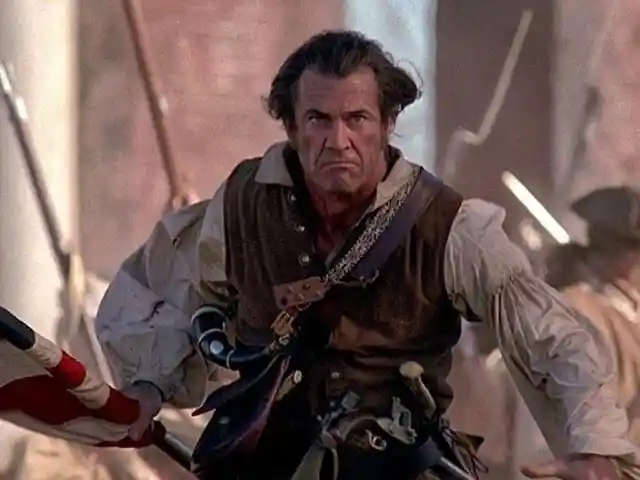
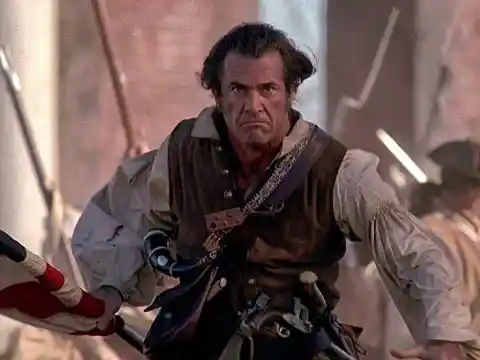
Just like the historical figure Francis Marion, Gibson´s character is attacked relentlessly by a band of Native Americans, prior to the Revolutionary war. And while, just like Marion, Gibson clearly owns slaves, the filmmakers tried to pretend the African-American that work on his South Carolina farms were free men... Of course they were, of course...
#4 - Tora! Tora! Tora!
You probably remember a few entries ago we talked about "Pearl Harbor". Well, you could consider "Tora! Tora! Tora!" as your "second try" for watching a movie based on these events, despite this one being much, MUCH older. It was actually released in 1970.
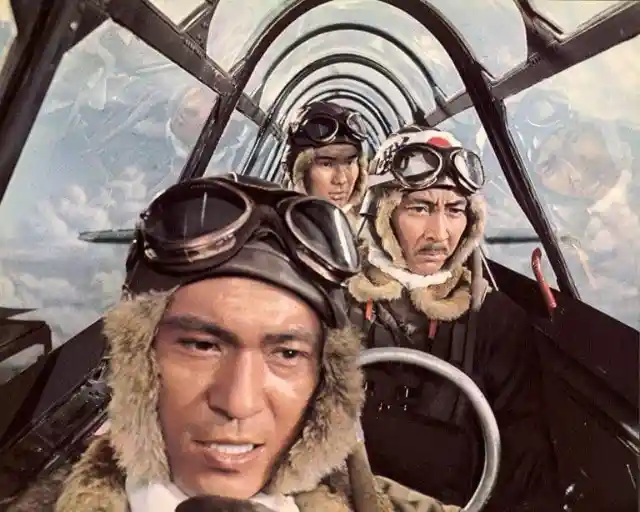
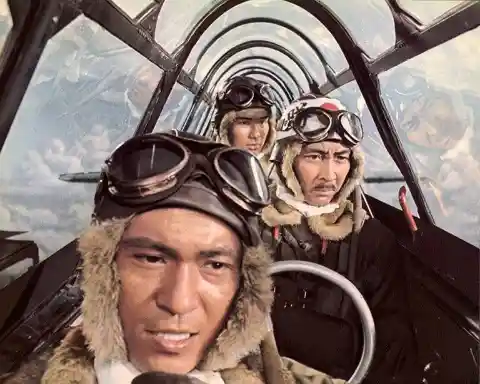
Taking a cooler and satirical portrayal of the events, this movie focuses on depicting what leads up to this battle from both perspectives, American and Japanese. Despite its efforts, people claim that the movie falls a bit short in portraying the political proceedings, and historians even today debate about the role of Emperor Hirohito when it comes to war strategy, but they mostly agree that he came out a bit too weak, and rather pushover on this movie.
#3 - The Great Escape
1963 American epic war film The Great Escape is fondly remembered as a crazy and entertaining movie, especially for its star lead, Steve McQueen, who pulled one of the greatest stunts ever by doing a crazy motorcycle jump at the end of the movie.
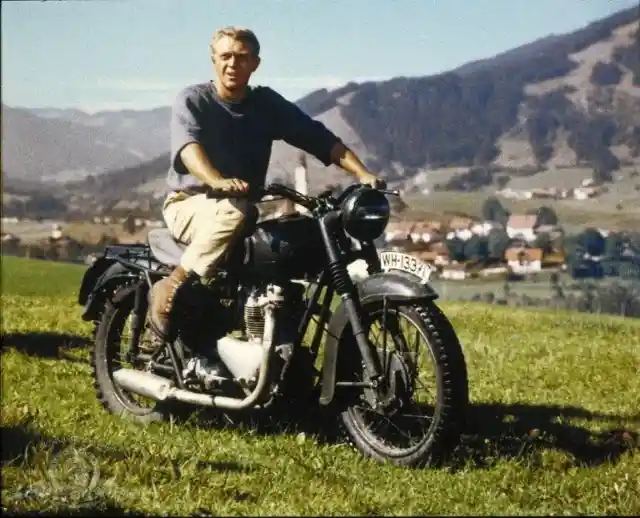
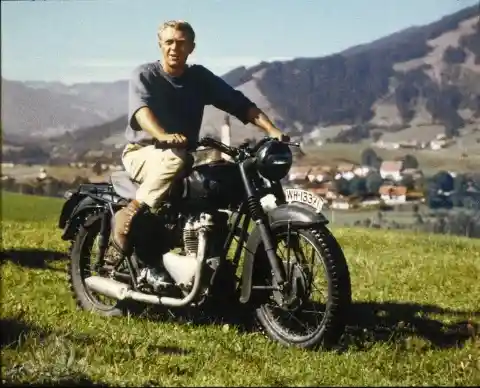
Not only cool, but also very true to its source material, the eponymous 1950 book written by Paul Brickhill, makes you wonder what exactly landed the movie on this list. It was, sadly, a matter of technical mistakes, such as no one who took part on the escape having used a motorcycle, let alone to jump over a wall. And McQueen´s character was actually Australian in the book, so the accents didn´t quite match.
#2 - The Longest Day
The Longest Day is a 1962 movie starred by John Wayne, who, despite being a bit too old for it, still did much better than the aforementioned film The Green Berets. This whole movie did, in fact! It is known as one of the greatest war movies of all time!
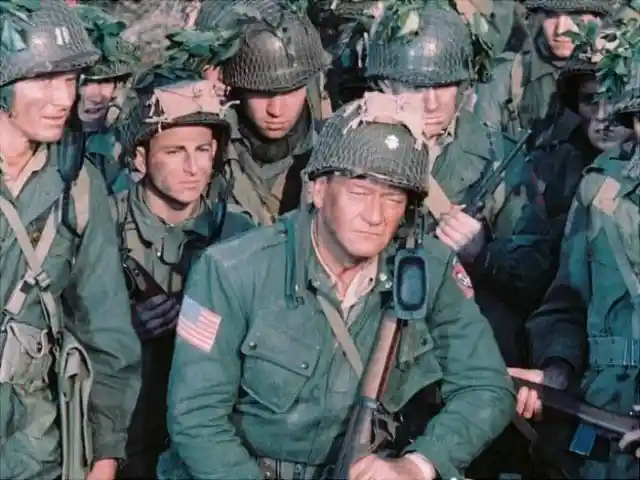
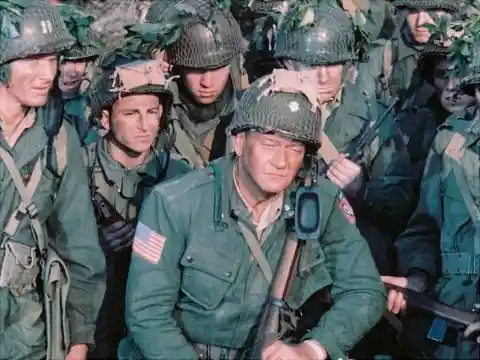
We once again see the events of D-Day, but this one we get the perspectives from the American, British, French, and German sides. As it tends to happen with movies, they are the best thing ever until a new one takes it place in one way or another. This is the case here, as The Longest Day was universally regarded as being extremely realistic, eventually it was outshined in that department by previously mentioned movie Saving Private Ryan, 3 decades and a half later.
#1 - The Deer Hunter
The Deer Hunter is universally agreed on being an amazing movie, and one of the most emotional films ever seen. With talents like Robert De Niro and Christopher Walken, and having won the Oscars for "Best Picture" and "Best Director", we really can see why. But now, let´s see what went wrong:
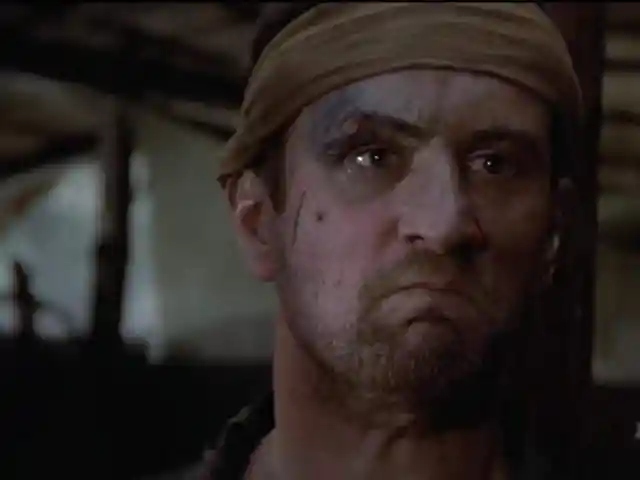
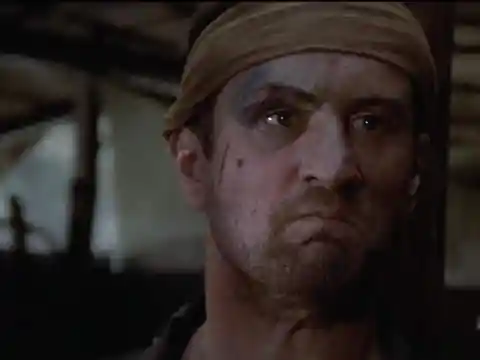
It appears that this movie was too fond of depicting the mind-bending game of Russian roulette, as if that were such a common occurrence for real life soldiers doing service in Vietnam. It´s also said that there are several factual and continuity mistakes, but this is certainly much more obvious for historical technicalities fans.